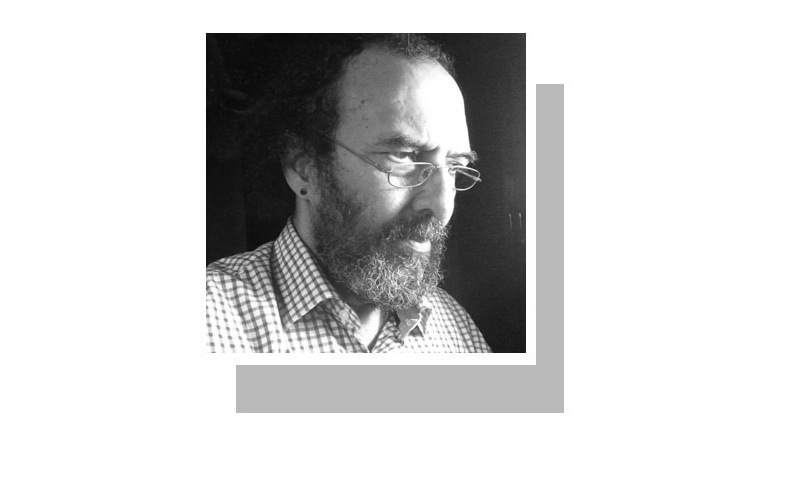IT was an illuminating discussion between different factions from across the Irish fault lines at Yale University last month, which may hold useful lessons for warring sides elsewhere. The charged debate — including between those whose politics once accepted the killing of each other as legitimate — was markedly civil.
Can the Afghan Taliban sit across the table with the current rulers in Kabul, I wondered. The mind travelled also to the embattled Kashmiris; the Sikhs fighting for Khalistan; the Maoists and their state-backed detractors in Chhattisgarh; the decades-old rebellion in India’s northeast; Muslim extremists in Pakistan and elsewhere, to their liberal or secular quarries too. I also thought of Patrice Lumumba’s fratricidal Congo. The complex skein of the Middle East conflict came to mind with Iran, Israel, Saudi Arabia and Palestine caught in a perennially haemorrhaging bind.
I met former US Senator George Mitchell at the conference, the man who crafted the Good Friday Agreement. The agreement largely halted (if not completely ended) decades of bloodletting between Irish partisans 20 years ago.
I asked Mr Mitchell whether the Kashmir conflict could be similarly resolved with the help of neutral benefactors. He would love to consider that, but India does not agree to third-party intervention. I said India’s post-independence history is littered with useful foreign interventions, mostly overtly. And in any case, the Kashmir issue was still essentially one of the bloodier conflicts lying unresolved in the vaults of the UN Security Council.
The Good Friday Agreement provides a significant precedent for how seemingly intractable standoffs could be resolved.
The 1965 war with Pakistan ended in an agreement in Tashkent, not without the active help of the Soviet Union; and the 1971 India-Pakistan conflict would have been a different story without the defence treaty Indira Gandhi signed with Moscow.
More recently, the Kargil spiral was tamed with the active help of Bill Clinton. Should anyone see it as an exaggerated claim, they could study the speech the former US president delivered to the Indian parliament. He claimed credit for ending the military campaign, while the Indian MPs applauded. The Indus Waters Treaty works because it stands mediated by the World Bank. That’s a whole lot more third-party interventions than the Irish conflict provisioned for.
What struck me at the Yale meet was the civility, as distinct from overburdened cordiality, with which leading representatives in the equation interacted and sought to address each other’s concerns. And the trigger for the gathering was the looming shadow of Brexit, which could undo much of the hard-earned achievements of Mitchell and other noble souls.
Obviously, the Good Friday Agreement cannot be a role model for other global conflicts to find a resolution. However, it provides, in my view, a significant precedent for how seemingly intractable standoffs could be resolved with a little support and encouragement from outsiders. Currently, the Irish issue is going through a tense patch, and not all of it has to do with Brexit.
In fact, Sinn Féin Chairperson Declan Kearney says that the strange alliance between Northern Ireland’s Democratic Unionist Party (DUP) and Britain’s Conservative party could be jeopardising the 20-year-old peace process.
Mr Kearney made the comments ahead of his discussion at Yale University. The South Antrim MLA from Northern Ireland called on the UK and Irish governments to begin preparations for an Irish unity referendum.
Theresa May’s government last week survived a no-confidence vote with the DUP’s 10 MPs. Mr Kearney believes that Brexit had brought the issue of Irish unity into focus. “Both the British and Irish governments have failed since 1998 in their obligations as co-guarantors of this internationally binding treaty to ensure the delivery of its vision,” the Sinn Féin chair said.
“Now 20 years on from the signing of the Good Friday Agreement the contradictions of partition have been brought sharply into focus again as a result of the political crisis in the north, the continued denial of citizens rights by political unionism, and opposition to rights based political institutions. The catastrophe of Brexit has deepened these contradictions.”
Northern Ireland has been without an executive since January 2017 when former deputy first minister, the late Martin McGuinness resigned over equality issues. McGuinness perhaps embodied a truly classic impossibility that stalls the resolution of conflicts around the world.
He could be the personification of the deep contradiction, for example, that hurts both sides in the Sikh stand-off or sharp differences stalking others. McGuinness was the IRA commander when his men assassinated Lord Mountbatten during a trip to Ireland. But Mountbatten’s daughter described the historic 2012 meeting between the Queen of England and McGuinness as “a wonderful moment”.
Countess Mountbatten lost her 14-year-old son Nicholas, father and mother-in-law when the IRA blew up their boat off the Sligo coastline in 1979. Four people in all lost their lives that day but Countess Mountbatten heralded the groundbreaking meeting and handshake between Sinn Féin’s McGuinness and the British monarch.
As for the Brexit manoeuvres, Sinn Féin sees the DUP-Tory deal as putting Northern Ireland on a regressive trajectory. “The majority will of citizens in the north to remain in the European Union has been made subordinate to a wreckers charter being driven by right-wing Tories and their allies in the DUP and political unionism,” Mr Kearney said. “Brexit represents the most extreme form of vandalism against the island’s economy and citizens’ rights.”
One of the trickier moments in the Good Friday Agreement involved the prison release of Thomas MacMahon who was convicted in the killing of Mountbatten. During his 18 years in prison, the IRA bomb-maker painted landscapes of his homeland. Today, they adorn his modest house in Northern Ireland. While Mountbatten’s spirit must have smiled at his killer’s more benign talent, it should also be worried at what lies ahead for the conflict that laid him low.

Comments
Post a Comment